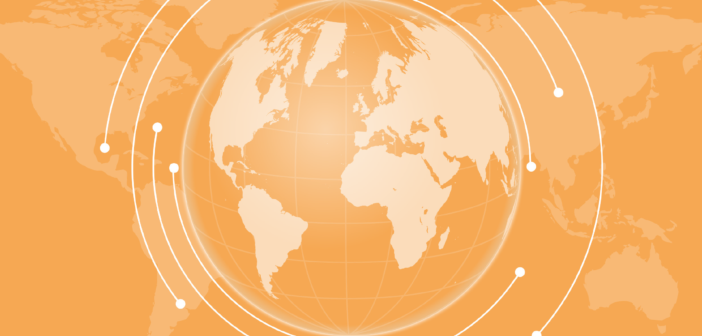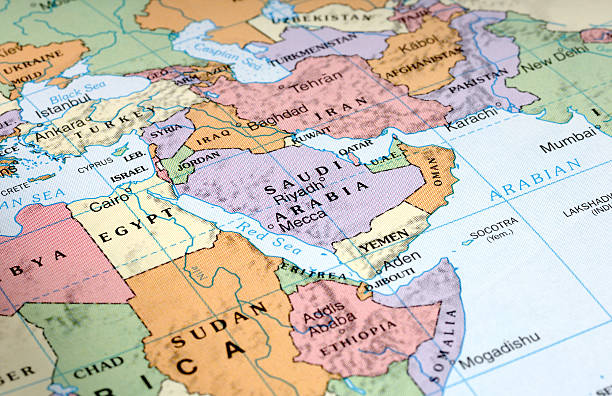The Battle for Eastern Ukraine
Ali Tuygan
Last week, in an article titled, “The U.S. Races to Arm Ukraine with Heavier, More Advanced Weaponry” the New York Times provided the reader with extensive information about the Western arms supplies to Ukraine.[i] It mentioned the Russian warning that Western deliveries of the “most sensitive” weapons systems to Ukraine could bring “unpredictable consequences”. It drew attention to concerns among NATO allies regarding the kinds of military equipment sent to Ukraine. Earlier in the week, German Vice Chancellor Robert Habeck had warned NATO allies that deliveries of modern tanks from Western producers could prompt Russia to extend its war to Western countries.
But the following comments somewhat surprised me:
“Seven weeks ago, they were arguing over whether to give Stinger missiles — how silly does that seem now?” said retired Lt. Gen. Frederick B. Hodges, the former top U.S. Army commander in Europe. “We have been deterred out of an exaggerated fear of what possibly could happen.” But that is not enough, General Hodges argued. “We are still not thinking big,” he said. “We are still not thinking in terms of Ukraine winning.” (emphasis added)
The title of another New York Times article was, “Can Ukraine Keep Winning?”[ii] It said:
“Ukraine has defeated Russia in the first phase of their war, and a second phase has begun. Having failed to topple Ukraine’s government, Russia has narrowed its ambitions and is concentrating on the eastern part of Ukraine known as the Donbas region. Vladimir Putin’s new goal appears to be severing Donbas from the rest of Ukraine and creating puppet republics there… The bottom line: A quick victory — by either side — seems unlikely. Then again, war is often very difficult to predict.”
Some centuries ago, victory and defeat were defined in terms of acquisition or loss of land. For a military power, a decisive victory on the battlefield could mean conquest. Lives lost; the devastation caused were secondary issues. The acquisition of large territories by force came to an end with the Second World War. It narrowed down to seizure of smaller regions, preferably with limited use of military power. Regime change projects and proxy wars became the new methods of strategic competition.
The people of Ukraine have confronted the Russian assault with remarkable bravery and resilience. They have earned the world’s respect. If President Putin’s initial plan was the conquest of Ukraine, failure to accomplish that may be seen as a defeat. But whether this means a victory for Ukraine begs the question. Attempts to define the end of the war in terms of “victory” or “defeat” for either side are not conducive to peace. Unfortunately, it is certain that the war would end with the loss of more Ukrainian territory to Russia. And the longer the war lasts, the greater the suffering and devastation would be for the people of Ukraine. Continued arms shipments by the US and its NATO allies would not change that. Were they wrong to do that? No, because lack of defense support could have encouraged President Putin to seek Ukraine’s total surrender. But now that the war has reached a certain stage, the sooner the attention shifts from war-making to peacemaking the better.
This is what Professor Anatol Lieven had to say on September 3, 2014, two days before the signing of the first Minsk Cease-fire Agreement:
“… a political solution… can only consist of a special autonomous status for the Donbass region within Ukraine.
“To separate the Donbass in this way while preserving the principle of Ukrainian territorial integrity would allow the West to help in developing and consolidating the rest of Ukraine without constant disturbances in the East. This would open the possibility — albeit a long way in the future — of Ukraine joining the European Union; and if the people of the Donbass region at that point choose to secede and lose the benefits of European Union membership — well, so much the worse for them.
“The choice today is not between a united Ukraine fully in the Western camp, or a Ukraine which has lost part of its territory to Russia. As recent military developments have demonstrated, the first outcome is simply not going to happen. The choice is between a Ukraine with an autonomous Donbass region, along with a real chance of developing the country’s democracy and economy in a Western direction, or a Ukraine which will be mired in a half-frozen conflict that will undermine all hopes of progress…” [iii]
Unfortunately, this did not happen. What now appears likely, is the repetition of what happened in Georgia in 2008 since it is impossible to wind the clock back to 2014.
Russia sanctions are making an impact on the global economy and are likely to test Western unity in the long term. Last week, euronews reported that German employers and unions united to oppose the EU Russian gas boycott. It said:
“Bosses and unions in Germany have joined forces to oppose a possible EU ban on Russian gas, saying it would grind industry to a halt. Many figures in Germany are calling for an EU-wide ban on Russian gas imports, following the country’s invasion of Ukraine in February. But German employers and trade unions announced Monday they oppose such a move, saying it would lead to job losses and factory shutdowns in the EU’s largest economy.”[iv]
Moreover, the world is facing a “human catastrophe” from a food crisis arising from Russia’s invasion of Ukraine, World Bank President David Malpass told the BBC. He warned that record rises in food prices were pushing hundreds of millions of people into poverty.
“It’s a human catastrophe, meaning nutrition goes down. But then it also becomes a political challenge for governments who can’t do anything about it – they didn’t cause it and they see the prices going up,” he said in an interview with the BBC’s economics editor. The World Bank calculates there could be a “huge” 37% increase in food prices, which is “magnified for poor”.
The invasion of Ukraine has proved a big miscalculation for President Putin, who has failed to foresee the extent of Western reaction and resolve. However, a protracted war may show that he was not entirely wrong in all his assumptions. So, it is imperative that the talks between Russia and Ukraine should be resumed to secure a general ceasefire, the evacuation of Mariupol, and save lives. Kyiv’s offer to send negotiators to Mariupol is the right approach. Lasting peace is not on the horizon yet, but once the fighting stops the US and its NATO allies can take their time to decide how they intend to deal with the challenges of the Second Cold War and help Ukraine chart a new course.
Yesterday, in a Foreign Affairs article titled, “Ukraine After the War, How the Country Can Tackle Corruption and Revive Its Democracy”, Melinda Haring and Jacob Heilbrunn said, “Having fortified Ukraine militarily, it will soon be time for the West to begin the task of helping Ukraine right itself economically. Now is the time to put plans in place to seize the momentum when the war is over and Ukraine can rebuild. Putin’s worst nightmare—a vibrant Slavic democracy next door—may yet come true.”[v]
———————————————————————————————————–
[i] https://www.nytimes.com/2022/04/19/world/europe/us-ukraine-weaponry.html?smid=em-share
[ii] https://www.nytimes.com/2022/04/20/briefing/russia-ukraine-war-next-phase-donbas.html?searchResultPosition=1
[iii] https://www.nytimes.com/2014/09/04/opinion/a-way-out-for-kiev-and-moscow.html
[iv] https://www.euronews.com/my-europe/2022/04/19/german-employers-and-unions-unite-to-oppose-eu-russian-gas-boycott
[v] https://www.foreignaffairs.com/articles/ukraine/2022-04-21/ukraine-after-war?utm_medium=newsletters&utm_source=fatoday&utm_campaign=The%20Return%20of%20Statecraft&utm_content=20220421&utm_term=FA%20Today%20-%20112017










